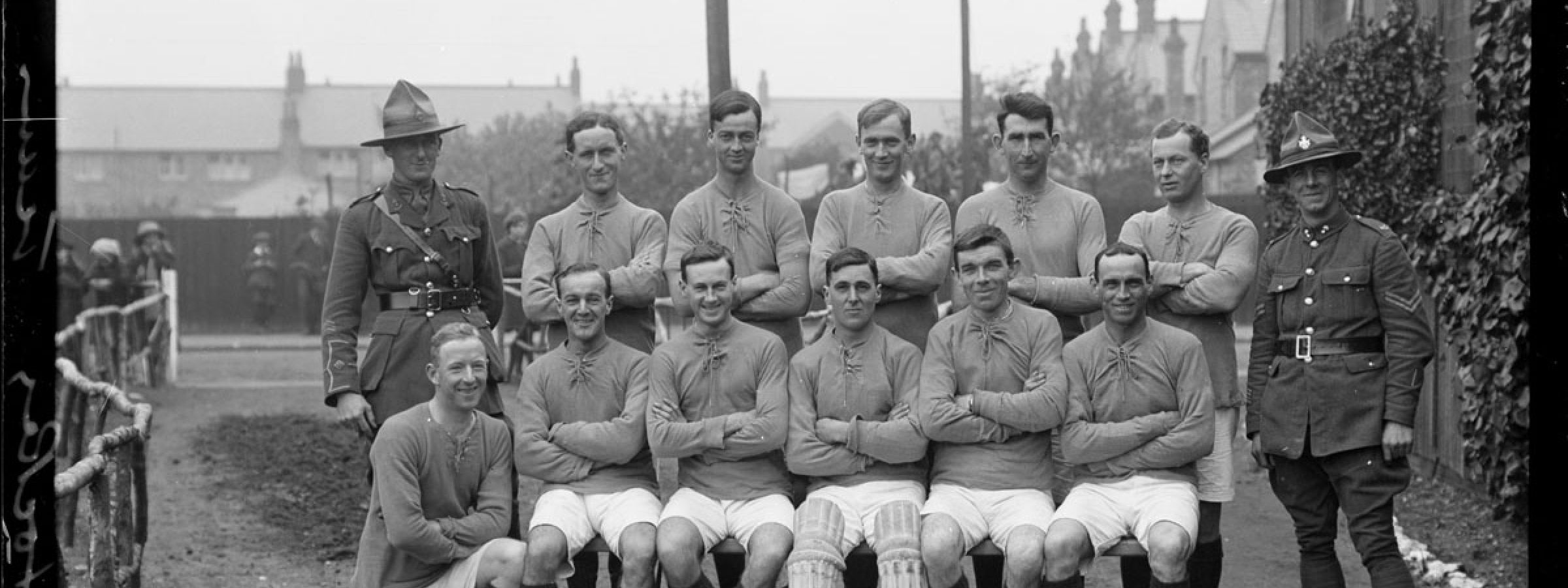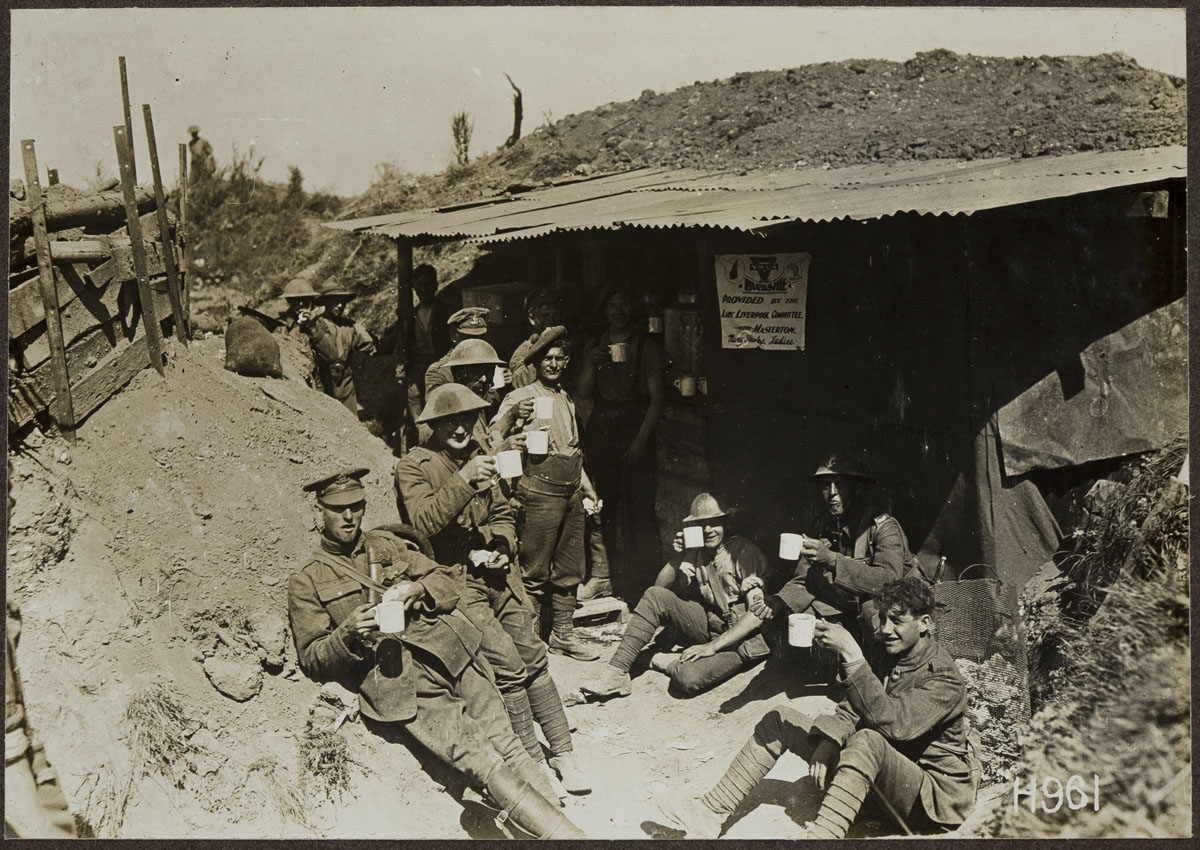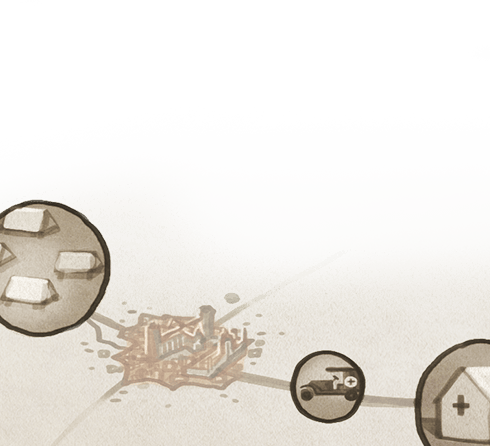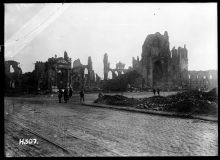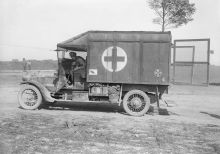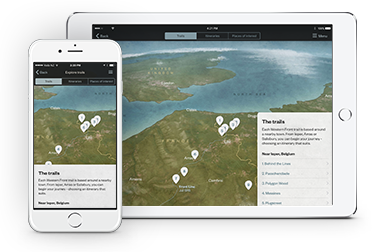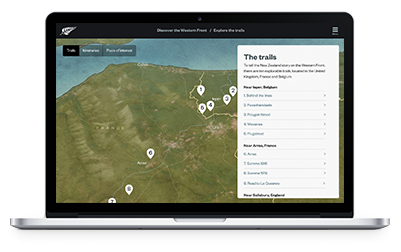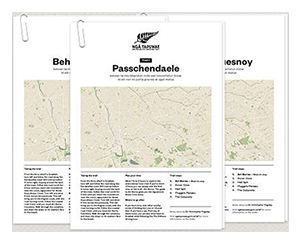Authorities recognised that leisure time was vital to keeping troops healthy and maintaining morale. Regular training was also seen as important.
When they were given time out from the horrors of the trenches, the men lived in camps and billets in nearby towns, where training included both drills and lectures. However, they also had spare time – which they filled with hobbies, games, and writing letters and diaries.
They socialised at canteens, and officers would get to mingle with each other at their own separate clubrooms.
In the town of Poperinge, Talbot House, better known as Toc H, was a Christian club that welcomed soldiers of all ranks to read, socialise and take part in religious activities. A sign on the wall said:
"A house of fellowship and of good cheer
Abandon rank all ye who enter here.”
Sports were encouraged among the soldiers – to build both fitness and team spirit.
Musical and theatrical performances were popular too, and each regiment and base had its own band. The New Zealand Division formed a theatre company, The Kiwis, in December 1916, and the YMCA donated a huge 800-seat marquee. When the division moved to the Ypres salient for the Third Battle of Ypres, they set up the marquee and performed to packed audiences from all the divisions in the area.
Read this audio story
Frederick Avery's story
"They did a lot of good too in the canteens, they weren't frontline soldiers by any means, they were a really Church of England organisation but they were very good the YMCA. They didn't care what you were or anything else they tended you properly, always get a hot drink in the YMCA or buy chocolates and biscuits. Oh no very good even back in New Zealand in the camps, they were very good. On the boats, they were on the troopships, YMCA oh no, I'd class them tops."
Indeed, the Young Men’s Christian Association (YMCA) was highly active in camps, providing all sorts of recreational facilities. Part of their agenda was to ensure the soldiers had access to ‘wholesome’ leisure activities, rather than drinking, gambling and visiting prostitutes.
Frederick Avery, interview by Jane Tolerton and Nicholas Boyack 23 November 1989, OHInt-0006/02, World War 1 Oral History Archive, Alexander Turnball Library, Wellington, NZ.
